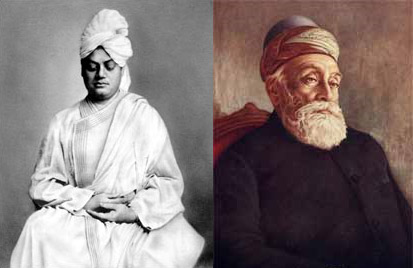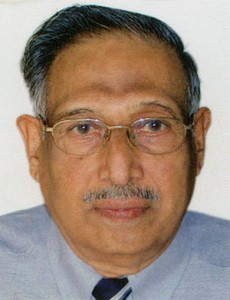 In 1893, in a boat that sailed from Yokohama to Vancouver, two great Indians, one, a monk and the other, an industrialist met for the first time. The monk was Swami Vivekananda, who was to take and interpret to the West, more effectively than anyone else, the religious and philosophical tradition of India. The industrialist was Jamshedji Tata, the father of Indian industry. As they got talking, Vivekananda explained his mission of preaching in the US, the universality of all religions. Jamshedji said he was in search of equipment and technology that would build the steel industry and make India a strong industrial nation. Vivekananda blessed Jamshedji, and remarked “How wonderful it would be if we could combine the scientific and technological achievements of the West with the asceticism and humanism of India!” Continue reading
In 1893, in a boat that sailed from Yokohama to Vancouver, two great Indians, one, a monk and the other, an industrialist met for the first time. The monk was Swami Vivekananda, who was to take and interpret to the West, more effectively than anyone else, the religious and philosophical tradition of India. The industrialist was Jamshedji Tata, the father of Indian industry. As they got talking, Vivekananda explained his mission of preaching in the US, the universality of all religions. Jamshedji said he was in search of equipment and technology that would build the steel industry and make India a strong industrial nation. Vivekananda blessed Jamshedji, and remarked “How wonderful it would be if we could combine the scientific and technological achievements of the West with the asceticism and humanism of India!” Continue reading
Category: India and The World
During the visit of our GRBS students to the Hebei University of Economics and Business, Hebei, China in 2009, I was invited by the Director, Dr Ms.Wang Qingyun to deliver a lecture on India’s Cultural Heritage. I spoke to a group of over 100 students of the International Exchange Centre. The theme was the distinctive characteristics of the Indian Ethos and the inspiration that countless generations of Indians, regardless of language and religion, had had from the wisdom of the scriptures. These have shaped the Indian philosophy of life and encouraged Indians to look inwards and find both the unique and the universal in one’ self and thus connect the self to the larger Self that is all pervading. I had also drawn attention to the cultural ties between India and China.
Continue reading




















Join my Network